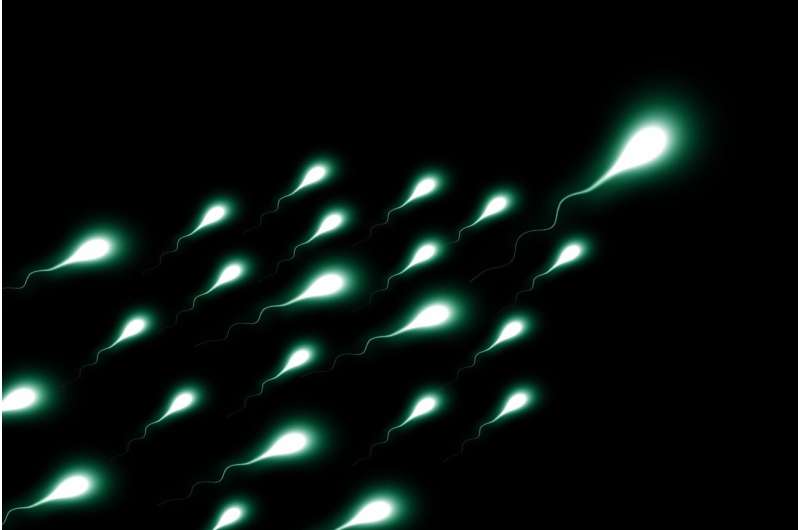Hidden Evolution in Sperm Increases Disease Risk for Offspring as Men Age

New research highlights how natural selection within the testes increases harmful genetic mutations in sperm as men age, raising the risk of genetic disorders in children.
Recent research reveals that harmful genetic mutations in sperm become significantly more prevalent with advancing paternal age. This phenomenon is partly driven by a subtle form of natural selection within the testes, which favors certain mutations during sperm production. A study published in Nature by scientists at the Wellcome Trust Sanger Institute, in collaboration with the TwinsUK cohort at King's College London, utilized ultra-accurate NanoSeq to analyze sperm samples from 81 healthy men aged 24 to 75. The findings indicate that approximately 2% of sperm from men in their early 30s carry disease-causing mutations, increasing to about 3-5% in those aged 43 to 58, and reaching nearly 4.5% in men over 70. This escalation highlights the heightened genetic risks passed to offspring as men grow older.
The research uncovered that natural selection during sperm development favors mutations in over 40 genes, many associated with neurodevelopmental disorders and hereditary cancers in children. Although not all mutations result in successful fertilization or live birth, the increasing burden of harmful mutations with age suggests a higher likelihood of transmitting genetic disorders.
Complementary studies analyzed mutations passed to children, revealing that certain genes undergo mutations that significantly boost mutation rates—up to 500-fold—potentially explaining the occurrence of some rare genetic diseases in offspring of older fathers. Experts emphasize that these mutations, favored during sperm production, are a hidden genetic risk factor increasing with paternal age.
Researchers like Dr. Matthew Neville and Professor Matt Hurles highlight that natural selection in the male germline can promote harmful mutations, raising concerns about genetic risks associated with delayed fatherhood. The findings open new avenues for reproductive risk assessment and underscore the importance of understanding how environmental and lifestyle factors may influence genetic inheritance.
Source: Medical Xpress
Stay Updated with Mia's Feed
Get the latest health & wellness insights delivered straight to your inbox.
Related Articles
Adenotonsillectomy Shows No Significant Advantage Over Watchful Waiting in Children with Mild Sleep Apnea
Research shows that adenotonsillectomy may not be more effective than watchful waiting for young children with mild obstructive sleep apnea, highlighting the importance of personalized treatment approaches.
Lower Doses of GLP-1 Medication Achieve Similar Weight Loss as Higher Doses, Danish Study Shows
A Danish study reveals that lower doses of semaglutide, combined with lifestyle and psychological support, can achieve weight loss similar to higher doses used in clinical trials, offering a promising approach to obesity management.
New Study Finds No Link Between Migraine Medications During Pregnancy and Child Neurodevelopment Disorders
A recent study finds no increased risk of autism, ADHD, or other neurodevelopmental disorders in children whose mothers took migraine drugs during pregnancy, ensuring safer treatment options for expectant mothers.
Research Connects COVID-19 and Bacterial Infections to Alzheimer's Disease Development
Recent studies reveal that infections like COVID-19 and bacterial agents may contribute to Alzheimer's disease through inflammation and neural invasion, opening new avenues for prevention and therapy.



